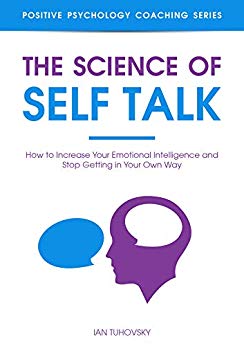Talking to ourselves – and learning to listen
We all speak to ourselves on a daily basis. Whether it’s out loud or an internal (or infernal) commentary, we all practice self-talk and, how we speak to ourselves can have a significant effect on our emotions and subsequent actions.
Some people’s self-talk is mostly about the future while, for others, it’s an internal dialogue about the past. Some self-talk is positive and upbeat, while other self-talk is harsh, critical or defeatist.
Self-talk can focus on other people but, more often than not, it is about ourselves – and is often negative.
If you listen carefully, you’ll notice that your inner conversation reflects thoughts and emotions. Self-talk isn’t random. It exhibits patterns that repeat themselves. And everyone has their own characteristic self-talk that is uniquely theirs.
In The Science Of Self-Talk mindfulness expert, Ian Tuhovsky explains how we can re-write the script when it comes to our internal communication. Through a series of simple exercises for use in daily life, you can understand your own self-talk in order to change the conversation.
Learn how you can listen to and understand your internal dialogue in order to change it.
Many of us practice negative self-talk by default – how many times have you called yourself an idiot or chastised yourself for not being good enough?
Negative self-talk is a harmful habit which can lead to anxiety, depression, and helplessness and, yet, this is something that most of us do on a regular basis. For many people, this is learned behavior whereby caution against boasting leads to self-criticism or self-deprecation. For others, this is a natural reflection of the self and one that can slowly corrode self-esteem. $0.99 on Kindle.































